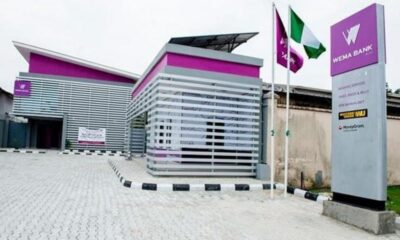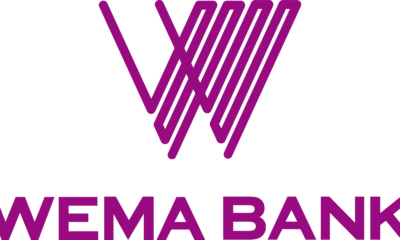Banking Sector
Wema Bank Posts Strong Growth in Q3, Grows Profit by 136 Percent

Banking Sector
Central Bank of Nigeria Mandates Cybersecurity Levy on Transactions
Banking Sector
GTCO Plc’s Profit Before Tax Grows by 587.5% to N509.35 Billion in Q1, 2024
Banking Sector
UBA Plc Reports 166% Surge in Q1 Profit to N143 Billion
-

 Naira4 weeks ago
Naira4 weeks agoDollar to Naira Black Market Today, April 9th, 2024
-




 Naira4 weeks ago
Naira4 weeks agoDollar to Naira Black Market Today, April 8th, 2024
-

 Billionaire Watch4 weeks ago
Billionaire Watch4 weeks agoNigerian Billionaire Tony Elumelu Contemplates Acquiring NPFL Club
-







 Naira4 weeks ago
Naira4 weeks agoNaira Hits Eight-Month High at 1,120/$ Amidst Central Bank Reforms
-



 Naira3 weeks ago
Naira3 weeks agoDollar to Naira Black Market Today, April 17th, 2024
-







 Naira3 weeks ago
Naira3 weeks agoDollar to Naira Black Market Today, April 18th, 2024
-

 Economy4 weeks ago
Economy4 weeks agoSiemens $2.3bn Power Project Sees Advancement with Arrival of Transformers, Substations, Announces Minister
-



 Naira3 weeks ago
Naira3 weeks agoNaira Appreciates to N1,136/$ Officially, N1,050/$ Parallel Market
















